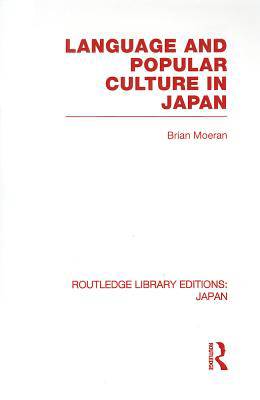
- Retrait gratuit dans votre magasin Club
- 7.000.000 titres dans notre catalogue
- Payer en toute sécurité
- Toujours un magasin près de chez vous
- Retrait gratuit dans votre magasin Club
- 7.000.0000 titres dans notre catalogue
- Payer en toute sécurité
- Toujours un magasin près de chez vous
Description
When this book was originally published it was the first work of its kind to examine the way in which language is used to express the 'myth' of advertising slogans and other popular cultural forms. By making use of general theories from the disciplines of anthropology, linguistics, media studies and semiotics, the book attempts to demystify Japanese culture as it has been hitherto presented in the West, and shows how such cultural forms as 'noodle westerns' and high-school baseball uphold the well-known ideologies of 'selflessness', 'diligence', 'compliance' and 'co-operation' typically associated with the Japanese. Ultimately, the book poses the question: are those whom we call the Japanese 'real' people in their own right, or merely a nation acting out a part written for them by Western civilisation?
Spécifications
Parties prenantes
- Auteur(s) :
- Editeur:
Contenu
- Nombre de pages :
- 196
- Langue:
- Anglais
- Collection :
Caractéristiques
- EAN:
- 9780415845557
- Date de parution :
- 27-02-13
- Format:
- Livre broché
- Format numérique:
- Trade paperback (VS)
- Dimensions :
- 155 mm x 231 mm
- Poids :
- 294 g

Les avis
Nous publions uniquement les avis qui respectent les conditions requises. Consultez nos conditions pour les avis.






